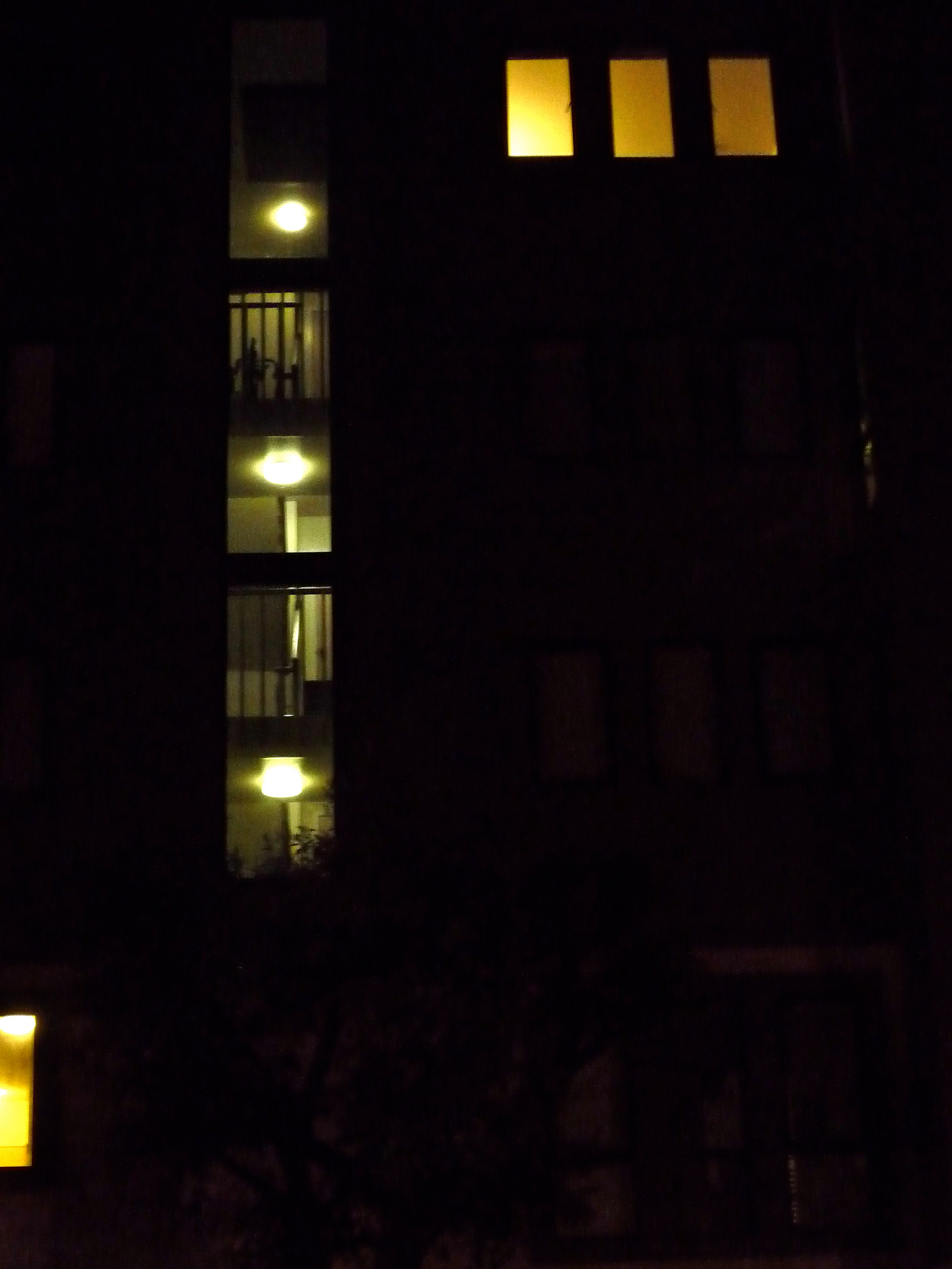Leaving Home
Why would she walk outside?
It was unseasonably hot.
That must have been the reason my grandmother walked down the aging basement stairs and out of the open garage door and traveled a block to the corner store, holding my three-year-old hand in hers. The giddy excitement of the moment still stays with me; the black night sky, like a stage backdrop, the garage brightly lit and curiously empty, and — most amazing — my grandmother walking, out of doors, all alone, with me.
My grandmother was an inside person. Rare it was, on the sunniest of days, to find her anywhere other than the square footage of her Cole Valley four-bedroom; my sister and I were in her care, so we stayed inside with her, all summer break, other than the rare occasions when she permitted us to explore the overgrown backyard. We played fervently, imagining we were orphans running our own farm. We harvested sour grass and thought mosquito larvae were tadpoles. At the very best moment in any game, she would call us indoors and we would not go out again for weeks.
The house was hers; the house was her. She could protect us, inside, so we roller skated down the hall, bumping on the tattered green carpet and stopping with our hands against the heavy oak front door, climbing from coffee table to velvet couch when the green carpet was hot lava, sliding down the fifteen stairs from the upstairs hall, each rug-burned drop, from step to step, a tooth-jarring earthquake. The house was our world; she was our world, and she knew it, warm, and soft, her pillowy lap a place to lay a drowsy head, her soft heavy arms carrying a pot of spaghetti and dumping it, steaming, into a green plastic colander.
I remember, dimly, being awakened in the night to take a dose of bitter-sweet cough syrup. Her bedroom was next to mine. She must have heard me coughing in my sleep, and walked downstairs in the middle of the night to fetch the medicine from the kitchen. The little light over the stove stayed on all night against the dark. Each room in that house holds the ghosts of a hundred loving gestures, performed as naturally as breathing.
Outdoors was my grandfather’s world, a world of hard men and backbreaking work, spat insults and bitter choices, where money was grasped and held by the man with the strongest fist. Even the backyard was his, the kettledrum barbecue dominating the concrete deck under the hopelessly overburdened yellow plum tree. They would barbecue, on the 4th and on Labor Day, and our big uncles and little cousins and the smell of roasting meat filled the house. My grandparents marinated the meat in beer and lemon juice and soy sauce in a huge enameled washpan; she would hand the raw meat to him through the basement door, both slippered feet firmly in the house, as if the doorframe was the border of a friendly but alien country.
The house, it bears repeating, was hers, and my grandfather knew it, deferring to her when he deferred to no one else.
Why, then, would she walk outside, when she never did? And at night? Why would she leave her sanctuary on a whim, when walking was so hard for her? Did I fantasize that we went for an improbable jaunt in the heat of Indian summer? Why wouldn’t I imagine her, then, at my school’s yearly Grandparents’ Day, or on a field trip to the museum — places where my gregarious grandfather always represented them both – instead of a five-minute walk uphill and around the corner?
I believe it happened. It is clearly an early childhood memory, more light and sound than action, the astonishing feeling of traveling into the outside world with its endless black sky while still being surrounded by my grandmother’s protection. I am far from home, now – home being the place where my grandmother washed dishes at the sink or sat on the couch watching her stories – and I can never go back again. Even if the situation was strange, even if the whole thing was a dream, who would not treasure the memory of exactly what it felt like to be loved?



